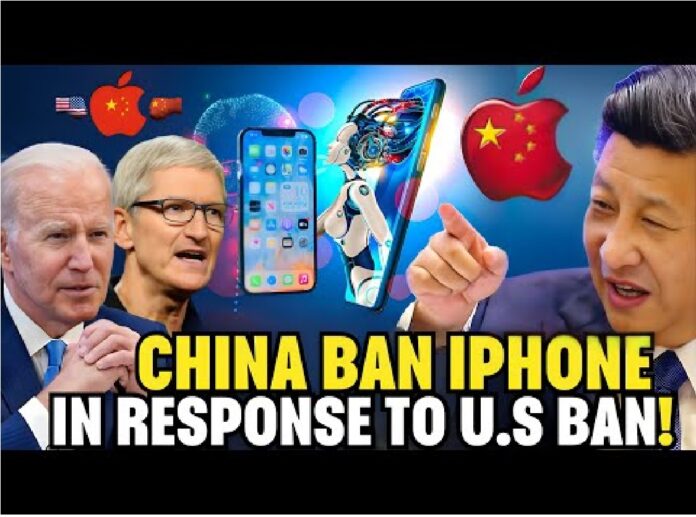China recently tightened its restrictions on the use of iPhones and other gadgets with foreign brands by government officials, which is a significant move. This decision, intended to protect sensitive information, has had an impact on the geopolitical environment as well as the tech sector. We will examine the specifics of this expansion, any potential repercussions, and what it implies for Apple’s market share in China in this article.
The Extensive Ban
In response to worries about national security, the Chinese government has decided to enlarge the scope of its ban on iPhones and other devices with foreign brands. The restriction now seeks to cover a wider range of state-owned corporations and government-controlled organizations after initially being restricted to critical ministries, government-backed agencies, and state companies. Beijing’s persistent efforts to lessen reliance on American software and technology, especially in delicate areas, are reflected in this escalation.
The Precarious Situation of Apple
One of the biggest tech companies in the world, Apple, is facing the possibility of a huge market upheaval in a sector that accounts for around one-fifth of its sales. The majority of iPhones are produced in China, where massive factories employ millions of Chinese workers. The restriction might weaken Apple’s market position and have an effect on both its sales and manufacturing.
Extent of the Ban is Uncertain
Although the Chinese government has made moves to broaden the prohibition, it is still unclear how many businesses or government organizations may eventually impose limitations on personal devices. No official or written injunction has been issued as of yet. Apple devices are already restricted in some workplaces, and more may follow suit and forbid employees from using them at all.
Relationship between Apple and Beijing
Apple has historically held a position of relative safety in China thanks to its close relationships to Beijing and the importance of the Chinese economy. Recent events, though, have prompted concerns about the company’s prospects in this crucial area. In the past, Apple’s position in China has been seen as secure from governmental constraints, but this may no longer be the case, according to KeyBanc Capital Markets analyst Brandon Nispel.
The Detailed Situation
This broadening of the prohibition on iPhones and devices with foreign brands is a part of a larger initiative by the Chinese government to lessen reliance on American technology, especially in sensitive agencies. Chinese authorities made a huge attempt to remove foreign technology from critical industries when they forced the replacement of foreign-branded personal computers with indigenous alternatives within two years in 2022.
International Consequences
Additionally, there are global repercussions to China’s action. Reflecting the escalating animosity between the two tech titans, the Biden administration in the United States has moved to restrict exports of cutting-edge semiconductor equipment to China. The growing iPhone and foreign-brand gadget ban might exacerbate already strained diplomatic ties and have far-reaching effects on the world’s technological environment.


